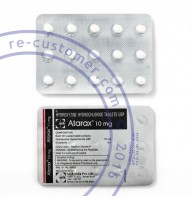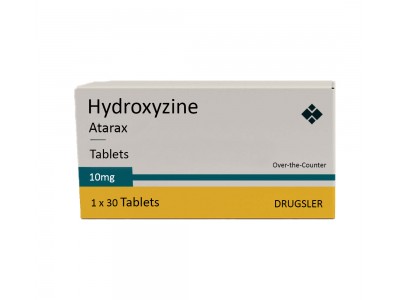When it comes to managing anxiety, allergies, or sleep issues, many people turn to medications like hydroxyzine and Benadryl (diphenhydramine). But is it safe to take these two drugs together, specifically at doses of 50 mg of hydroxyzine and 25 mg of Benadryl? This question is crucial for anyone considering combining these medications for enhanced effect or due to a lack of relief from a single drug.
Understanding Hydroxyzine and Benadryl
Hydroxyzine is an antihistamine commonly prescribed for anxiety, itching, and sleep issues. It has a sedative effect and is often used to calm the nervous system. Benadryl, another antihistamine, is frequently used for allergies and cold symptoms, but it also has sedative properties. Both drugs work by blocking histamine receptors, but they have slightly different mechanisms and effects.
Can I take 50 mg of hydroxyzine and 25 mg of Benadryl together?
This is a common query among individuals seeking stronger relief from symptoms like anxiety or severe allergies. The concern arises from the fact that both hydroxyzine and Benadryl can cause drowsiness and sedation. When taken together, these effects may be intensified, leading to increased risks of side effects such as excessive drowsiness, confusion, or even respiratory depression in severe cases.
Hydroxyzine and Benadryl drug interaction
Both hydroxyzine and Benadryl act as central nervous system depressants, meaning they can slow down brain activity. This interaction can be risky, especially in higher doses, as it may lead to pronounced drowsiness, difficulty concentrating, and impaired motor functions. It is generally advised to avoid combining these two medications unless specifically directed by a healthcare professional.
Safe to mix hydroxyzine and Benadryl
While some healthcare providers might approve the combination for specific cases, such as severe allergic reactions where sedation is beneficial, this should not be done without medical supervision. The combined sedative effects can be unpredictable, and the risk of adverse reactions increases, particularly in sensitive individuals or those with preexisting health conditions.
Hydroxyzine 50 mg and Benadryl 25 mg together: What to Consider
Before combining hydroxyzine and Benadryl, it’s crucial to consider factors like your overall health, any existing medical conditions, and other medications you might be taking. For instance, if you’re already taking other sedatives, muscle relaxants, or medications that depress the central nervous system, combining these drugs could significantly enhance sedative effects, potentially leading to dangerous side effects.
Hydroxyzine vs Benadryl for anxiety
While both medications can be used to treat anxiety, they are not interchangeable. Hydroxyzine is often preferred for anxiety due to its longer-lasting effects and less intense drowsiness compared to Benadryl. However, Benadryl might be chosen for short-term relief or when allergic symptoms are also present. Mixing the two for anxiety treatment is generally not recommended due to the compounded sedative effects.
Benadryl and hydroxyzine side effects
The side effects of both hydroxyzine and Benadryl include drowsiness, dry mouth, blurred vision, constipation, and urinary retention. When combined, these side effects can be more severe. For instance, the risk of extreme drowsiness or confusion is heightened, which can impair your ability to perform tasks requiring alertness, such as driving or operating machinery.
Hydroxyzine 50 mg with Benadryl 25 mg dosage: Is It Safe?
Determining the safety of this combination depends on several factors, including your age, weight, medical history, and the presence of other medications. Generally, healthcare providers will weigh the benefits against the risks before recommending this combination. For most people, taking 50 mg of hydroxyzine with 25 mg of Benadryl is not typically recommended due to the risk of excessive sedation.
Combining hydroxyzine and Benadryl: What Are the Alternatives?
Rather than combining these two sedative antihistamines, consider alternatives such as adjusting the dosage of one medication or exploring non-sedative options. For example, non-sedating antihistamines like loratadine or cetirizine could be used for allergies, while other anxiety medications like SSRIs might be more appropriate for managing anxiety without the risk of compounded sedation.
Hydroxyzine and Benadryl overdose risk
The risk of overdose increases when combining medications that have similar effects. Both hydroxyzine and Benadryl can depress the central nervous system, leading to symptoms of overdose such as extreme drowsiness, confusion, difficulty breathing, and in severe cases, coma or death. It’s essential to follow dosage guidelines carefully and consult with a healthcare provider before combining these medications.
Hydroxyzine and Benadryl for sleep: A Safe Option?
While both medications can be used for sleep, combining them is not generally recommended due to the heightened risk of severe sedation and possible respiratory depression. If sleep issues persist, it’s better to consult a healthcare provider who can recommend safer alternatives, such as a single medication with a more favorable side effect profile or non-pharmacological sleep aids.
In conclusion, while the combination of 50 mg of hydroxyzine and 25 mg of Benadryl might be considered by some for enhanced relief, it is generally not advisable due to the increased risk of severe side effects. Always consult with a healthcare provider before combining medications, especially those that have sedative effects. This approach will help ensure that you achieve the desired relief without compromising your safety.

